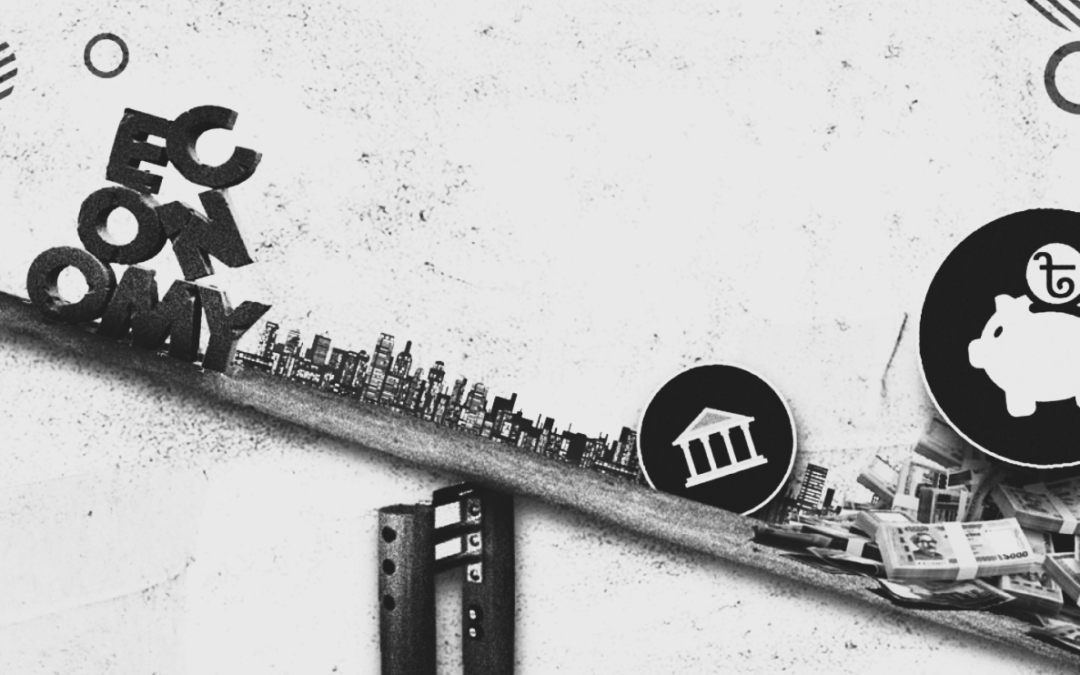Even a couple of years ago, Ease of Doing Business was used to be a major index highlighting business environment across the world and compatibility of the nations in harnessing Foreign Direct Investment (FDI). With hardly any alteration, Bangladesh continuously ranked poorly in that index. Although the World Bank has discontinued reporting this index, in case of Bangladesh the scenario remained exactly the same as it was reported in the earlier publications of the index, if not worsened.
The business environment of Bangladesh has long been plagued by a series of structural and policy-related challenges that have hold back both FDI and domestic private sector growth. The private investment growth shows somewhat an upward trend, only by a small margin, till 2019, then it fell and became stagnant afterwards. FDI accumulation also remained low and stagnant in absolute number, and it started declining in terms of its share to the GDP after reaching a peak in 2013. Furthermore, rapid increase in government borrowing has strained the country’s banking sector, leaving little room for private sector credit.
According to the Bangladesh Business Climate Index 2023-24, country’s business landscape saw a deterioration in 2023 compared to 2022, with an index score of 58.75 which was 61.95 in the past year. The index constitutes of 11 pillars such as – Starting a Business, Access to Land, Availability of Regulatory Information, Infrastructure, Labour Regulation, Dispute Resolution, Trade Fascilitation, Paying Taxes, Technology Adaptation, Access to Finance, and Environmental Regulation and Standards. Among the pillars, only three of them – Access to Land, Trade Facilitation, and Technology adaptation – showed slight improvement, while the rest seven deteriorated, with Access to Finance and Starting Business marking serious deterioration of 20.18 and 11.35 percent respectively. The struggle in accessing finance is more severe among micro, small and medium enterprises than large firms. The former ruling party introduced interest rate cap, six to nine percent, only to be discontinued later, to give easy access to loan, however, most of these easy loans were procured by vested group, hardly benefiting the budding investors.
One of the most significant challenges that have suppressed both foreign and domestic investment in Bangladesh is the country’s poor infrastructure and logistics network. Despite being one of the fastest-growing economies in South Asia, Bangladesh has lagged behind in developing the necessary infrastructure to support its industrial and business sectors. The transportation system, including road, rail, and port facilities, is inadequate to meet the growing demands of trade and commerce. Delays in the movement of goods due to traffic congestion, insufficient warehousing facilities, and underdeveloped ports result in increased costs for businesses.
For foreign investors, these logistical challenges are a major deterrent. Even though Bangladesh offers competitive labour costs, the additional costs incurred due to inefficient logistics often outweigh these advantages. Although the former government introduced initiatives like the One Stop Service (OSS) to streamline these processes, their implementation has been lacklustre. Furthermore, the delay in power connections and inconsistent energy supply exacerbates the problem. This makes Bangladesh less attractive compared to neighbouring countries like Vietnam, India, and Myanmar, which have made substantial investments in improving their infrastructure and reducing logistics costs.
With the formation of an interim government, there is a renewed opportunity to address these lingering issues and introduce meaningful reforms to foster a more favourable business climate. To begin with, the government must prioritize large-scale infrastructure projects that improve transportation networks, modernize ports, and enhance warehousing facilities. Special focus should be given to the completion of existing projects, such as establishment of the Special Economic Zones (SEZs), as well as new projects aimed at connecting industrial zones to major ports and reducing congestion in key urban areas like Dhaka and Chittagong. Modernizing port management systems through an automated custom procedure can help reduce inefficiencies, lower logistics costs, and attract more foreign and domestic investors. A proper risk management system and cross-border cooperation in customs will also be beneficial.
Reforming the financial sector is another priority. The government must reduce its reliance on local banks for financing and instead explore alternative sources of funding, such as international capital markets or infrastructure bonds. Strengthening regulatory oversight, improving bank governance, and setting limits on government borrowing from domestic banks will ensure that more funds are available for private investors, particularly SMEs. Moreover, revising the tax and tariff structures to align with WTO standards is a must to ensure the competitiveness of local industries. Rationalization of supplementary and regulatory duties and reduction of duties on raw materials and intermediate goods will help domestic businesses to compete internationally. Transparent tariff policies can be effective in making Bangladesh an attractive destination for foreign investment. Additionally, institutional reform is equally important to ensure the implementation of the policies.
Bangladesh’s political landscape has long been a source of uncertainty for investors, both foreign and domestic. In many cases, businesses have postponed or scaled down investment plans due to fears of political instability or policy changes that could affect their operations. The new government must prioritize political stability and transparency to rebuild business confidence. Ensuring that regulatory frameworks remain consistent, regardless of political transitions, is key to fostering a predictable business environment. Investors need to feel confident that their investments will not be adversely affected by sudden changes in policy. Additionally, the government should establish independent bodies to oversee regulatory compliance, anti-corruption efforts, and dispute resolution. By depoliticizing the regulatory environment and introducing mechanisms to ensure accountability, the government can create a more conducive atmosphere for business growth.
This Article was first published in the October, 2024 edition of the Thinking Aloud




RECENT COMMENTS